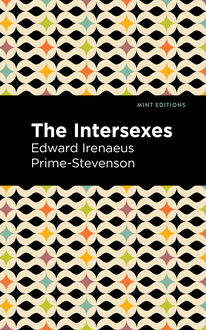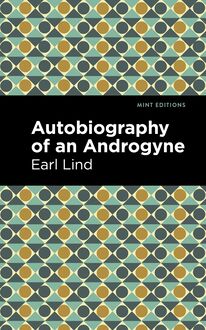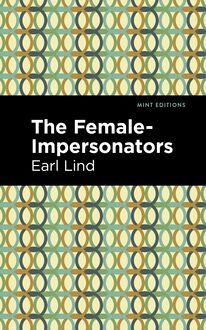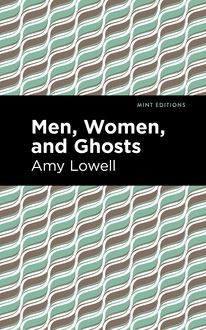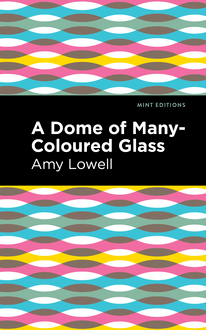-
 Univers
Univers
-
 Ebooks
Ebooks
-
 Livres audio
Livres audio
-
 Presse
Presse
-
 Podcasts
Podcasts
-
 BD
BD
-
 Documents
Documents
-
- Cours
- Révisions
- Ressources pédagogiques
- Sciences de l’éducation
- Manuels scolaires
- Langues
- Travaux de classe
- Annales de BEP
- Etudes supérieures
- Maternelle et primaire
- Fiches de lecture
- Orientation scolaire
- Méthodologie
- Corrigés de devoir
- Annales d’examens et concours
- Annales du bac
- Annales du brevet
- Rapports de stage
La lecture à portée de main
Vous pourrez modifier la taille du texte de cet ouvrage
Découvre YouScribe en t'inscrivant gratuitement
Je m'inscrisDécouvre YouScribe en t'inscrivant gratuitement
Je m'inscrisEn savoir plus
Vous pourrez modifier la taille du texte de cet ouvrage
En savoir plus

Description
After the release of D.H Lawrence’s compelling novel, Sons and Lovers, which details a complicated and borderline abusive relationship between a mother and son, many critics sought issues with the content, accusing Lawrence of writing a shameful and incestuous novel. Amid this criticism, Lawrence was inspired to write Fantasia of the Unconscious, explaining the themes and topics that often find their way into his work while defending himself against the raging criticism of Sons and Lovers. Though Lawrence admits his bias, as well as acknowledging that he is not a scientist nor a scholar, he supports his psychoanalytic claims and raises concerns that had previously been unvoiced. First, Lawrence debunks popular Freudian psychology and Oedipus theories, mainly to defend his novel, Sons and Lovers, which was semi-autobiographical, from the claims that the mother and son depicted in the novel had a sexual relationship. Lawrence continues to analyze social practices and expectations of marriage, raising children, education, and political action. He challenged the very idea of self, which is a cornerstone of Western culture. Furthermore, Lawrence articulates the mental struggles that exists between emotional and intellectual identities, discussing the polarity of each and the cases in which they intersect, causing a turmoil of contradiction. Though he is not trained in the science, D.H Lawrence spent a lifetime writing about human observations that others found too grotesque or taboo to acknowledge, allowing Lawrence to have a certain expertise on such issues. With psychoanalytic theory, Lawrence supports his views, theories, and philosophies that often invited controversy in the literary and social realm. With poem-like prose and abstract ideas, D.H Lawrence proposes theories that surprises and compels readers. Described as being ahead of its time, Fantasia of the Unconscious introduces ideas that can be examined in practice in modern society. With insight on topics of education, marriage, and social norms, Fantasia of the Unconscious is an illuminating guide to D.H Lawrence’s other works. This edition of Fantasia of the Unconscious is now presented in an easy-to-read font and features a new, eye-catching cover design to cater to contemporary readers.
Sujets
Informations
| Publié par | Mint Editions |
| Date de parution | 07 mai 2021 |
| Nombre de lectures | 0 |
| EAN13 | 9781513275543 |
| Langue | English |
| Poids de l'ouvrage | 1 Mo |
Informations légales : prix de location à la page 0,0450€. Cette information est donnée uniquement à titre indicatif conformément à la législation en vigueur.
Extrait
Fantasia of the Unconscious
D.H. Lawrence
Fantasia of the Unconscious was first published in 1922.
This edition published by Mint Editions 2021.
ISBN 9781513270548 | E-ISBN 9781513275543
Published by Mint Editions®
minteditionbooks.com
Publishing Director: Jennifer Newens
Design & Production: Rachel Lopez Metzger
Typesetting: Westchester Publishing Services
C ONTENTS F OREWORD I. I NTRODUCTION II. T HE H OLY F AMILY III. P LEXUSES, P LANES AND S O O N IV. T REES AND B ABIES AND P APAS AND M AMAS V. T HE F IVE S ENSES VI. F IRST G LIMMERINGS OF M IND VII. F IRST S TEPS IN E DUCATION VIII. E DUCATION AND S EX IN M AN, W OMAN AND C HILD IX. T HE B IRTH OF S EX X. P ARENT L OVE XI. T HE V ICIOUS C IRCLE XII. L ITANY OF E XHORTATIONS XIII. C OSMOLOGICAL XIV. S LEEP AND D REAMS XV. T HE L OWER S ELF E PILOGUE
F OREWORD
T he present book is a continuation from “Psychoanalysis and the Unconscious.” The generality of readers had better just leave it alone. The generality of critics likewise. I really don’t want to convince anybody. It is quite in opposition to my whole nature. I don’t intend my books for the generality of readers. I count it a mistake of our mistaken democracy, that every man who can read print is allowed to believe that he can read all that is printed. I count it a misfortune that serious books are exposed in the public market, like slaves exposed naked for sale. But there we are, since we live in an age of mistaken democracy, we must go through with it.
I warn the generality of readers, that this present book will seem to them only a rather more revolting mass of wordy nonsense than the last. I would warn the generality of critics to throw it in the waste paper basket without more ado.
As for the limited few, in whom one must perforce find an answerer, I may as well say straight off that I stick to the solar plexus. That statement alone, I hope, will thin their numbers considerably.
Finally, to the remnants of a remainder, in order to apologize for the sudden lurch into cosmology, or cosmogony, in this book, I wish to say that the whole thing hangs inevitably together. I am not a scientist. I am an amateur of amateurs. As one of my critics said, you either believe or you don’t.
I am not a proper arch æ ologist nor an anthropologist nor an ethnologist. I am no “scholar” of any sort. But I am very grateful to scholars for their sound work. I have found hints, suggestions for what I say here in all kinds of scholarly books, from the Yoga and Plato and St. John the Evangel and the early Greek philosophers like Herakleitos down to Fraser and his “Golden Bough,” and even Freud and Frobenius. Even then I only remember hints—and I proceed by intuition. This leaves you quite free to dismiss the whole wordy mass of revolting nonsense, without a qualm.
Only let me say, that to my mind there is a great field of science which is as yet quite closed to us. I refer to the science which proceeds in terms of life and is established on data of living experience and of sure intuition. Call it subjective science if you like. Our objective science of modern knowledge concerns itself only with phenomena, and with phenomena as regarded in their cause-and-effect relationship. I have nothing to say against our science. It is perfect as far as it goes. But to regard it as exhausting the whole scope of human possibility in knowledge seems to me just puerile. Our science is a science of the dead world. Even biology never considers life, but only mechanistic functioning and apparatus of life.
I honestly think that the great pagan world of which Egypt and Greece were the last living terms, the great pagan world which preceded our own era once, had a vast and perhaps perfect science of its own, a science in terms of life. In our era this science crumbled into magic and charlatanry. But even wisdom crumbles.
I believe that this great science previous to ours and quite different in constitution and nature from our science once was universal, established all over the then-existing globe. I believe it was esoteric, invested in a large priesthood. Just as mathematics and mechanics and physics are defined and expounded in the same way in the universities of China or Bolivia or London or Moscow to-day, so, it seems to me, in the great world previous to ours a great science and cosmology were taught esoterically in all countries of the globe, Asia, Polynesia, America, Atlantis and Europe. Belt’s suggestion of the geographical nature of this previous world seems to me most interesting. In the period which geologists call the Glacial Period, the waters of the earth must have been gathered up in a vast body on the higher places of our globe, vast worlds of ice. And the sea-beds of to-day must have been comparatively dry. So that the Azores rose up mountainous from the plain of Atlantis, where the Atlantic now washes, and the Easter Isles and the Marquesas and the rest rose lofty from the marvelous great continent of the Pacific.
In that world men lived and taught and knew, and were in one complete correspondence over all the earth. Men wandered back and forth from Atlantis to the Polynesian Continent as men now sail from Europe to America. The interchange was complete, and knowledge, science was universal over the earth, cosmopolitan as it is to-day.
Then came the melting of the glaciers, and the world flood. The refugees from the drowned continents fled to the high places of America, Europe, Asia, and the Pacific Isles. And some degenerated naturally into cave men, neolithic and paleolithic creatures, and some retained their marvelous innate beauty and life-perfection, as the South Sea Islanders, and some wandered savage in Africa, and some, like Druids or Etruscans or Chaldeans or Amerindians or Chinese, refused to forget, but taught the old wisdom, only in its half-forgotten, symbolic forms. More or less forgotten, as knowledge: remembered as ritual, gesture, and myth-story.
And so, the intense potency of symbols is part at least memory. And so it is that all the great symbols and myths which dominate the world when our history first begins, are very much the same in every country and every people, the great myths all relate to one another. And so it is that these myths now begin to hypnotize us again, our own impulse towards our own scientific way of understanding being almost spent. And so, besides myths, we find the same mathematic figures, cosmic graphs which remain among the aboriginal peoples in all continents, mystic figures and signs whose true cosmic or scientific significance is lost, yet which continue in use for purposes of conjuring or divining.
If my reader finds this bosh and abracadabra, all right for him. Only I have no more regard for his little crowings on his own little dunghill. Myself, I am not so sure that I am one of the one-and-onlies. I like the wide world of centuries and vast ages—mammoth worlds beyond our day, and mankind so wonderful in his distances, his history that has no beginning yet always the pomp and the magnificence of human splendor unfolding through the earth’s changing periods. Floods and fire and convulsions and ice-arrest intervene between the great glamorous civilizations of mankind. But nothing will ever quench humanity and the human potentiality to evolve something magnificent out of a renewed chaos.
I do not believe in evolution, but in the strangeness and rainbow-change of ever-renewed creative civilizations.
So much, then, for my claim to remarkable discoveries. I believe I am only trying to stammer out the first terms of a forgotten knowledge. But I have no desire to revive dead kings, or dead sages. It is not for me to arrange fossils, and decipher hieroglyphic phrases. I couldn’t do it if I wanted to. But then I can do something else. The soul must take the hint from the relics our scientists have so marvelously gathered out of the forgotten past, and from the hint develop a new living utterance. The spark is from dead wisdom, but the fire is life.
And as an example—a very simple one—of how a scientist of the most innocent modern sort may hint at truths which, when stated, he would laugh at as fantastic nonsense, let us quote a word from the already old-fashioned “Golden Bough.” “It must have appeared to the ancient Aryan that the sun was periodically recruited from the fire which resided in the sacred oak.”
Exactly. The fire which resided in the Tree of Life. That is, life itself. So we must read: “It must have appeared to the ancient Aryan that the sun was periodically recruited from life.”—Which is what the early Greek philosophers were always saying. And which still seems to me the real truth, the clue to the cosmos. Instead of life being drawn from the sun, it is the emanation from life itself, that is, from all the living plants and creatures which nourish the sun.
Of course, my dear critic, the ancient Aryans were just doddering—the old duffers: or babbling, the babes. But as for me, I have some respect for my ancestors, and believe they had more up their sleeve than just the marvel of the unborn me.
One last weary little word. This pseudo-philosophy of mine—“pollyanalytics,” as one of my respected critics might say—is deduced from the novels and poems, not the reverse. The novels and poems come unwatched out of one’s pen. And then the absolute need which one has for some sort of satisfactory mental attitude towards oneself and things in general makes one try to abstract some definite conclusions from one’s experiences as a writer and as a man. The novels and poems are pure passionate experience. These “pollyanalytics” are inferences made afterwards, from the experience.
And finally, it seems to me that even art is utterly dependent on philosophy: or if you prefer it, on a metaphysic. The metaphysic or philosophy may not be anywhere very accurately stated and may be quite unconscious, in the artist, yet it is a metaphysic that gove
-
 Univers
Univers
-
 Ebooks
Ebooks
-
 Livres audio
Livres audio
-
 Presse
Presse
-
 Podcasts
Podcasts
-
 BD
BD
-
 Documents
Documents
-
Jeunesse
-
Littérature
-
Ressources professionnelles
-
Santé et bien-être
-
Savoirs
-
Education
-
Loisirs et hobbies
-
Art, musique et cinéma
-
Actualité et débat de société
-
Jeunesse
-
Littérature
-
Ressources professionnelles
-
Santé et bien-être
-
Savoirs
-
Education
-
Loisirs et hobbies
-
Art, musique et cinéma
-
Actualité et débat de société
-
Actualités
-
Lifestyle
-
Presse jeunesse
-
Presse professionnelle
-
Pratique
-
Presse sportive
-
Presse internationale
-
Culture & Médias
-
Action et Aventures
-
Science-fiction et Fantasy
-
Société
-
Jeunesse
-
Littérature
-
Ressources professionnelles
-
Santé et bien-être
-
Savoirs
-
Education
-
Loisirs et hobbies
-
Art, musique et cinéma
-
Actualité et débat de société
- Cours
- Révisions
- Ressources pédagogiques
- Sciences de l’éducation
- Manuels scolaires
- Langues
- Travaux de classe
- Annales de BEP
- Etudes supérieures
- Maternelle et primaire
- Fiches de lecture
- Orientation scolaire
- Méthodologie
- Corrigés de devoir
- Annales d’examens et concours
- Annales du bac
- Annales du brevet
- Rapports de stage

